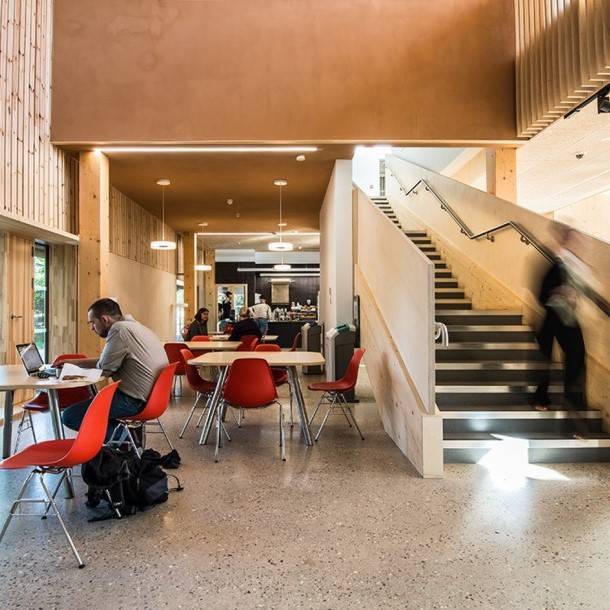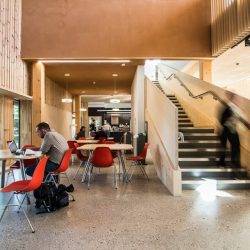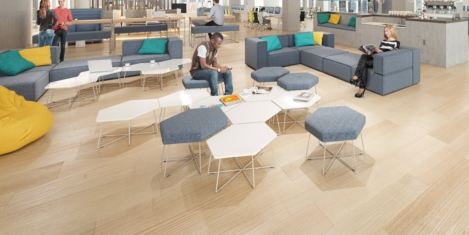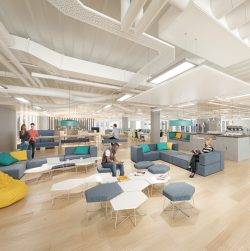To provide the best experiences, we use technologies like cookies to store and/or access device information. Consenting to these technologies will allow us to process data such as browsing behaviour or unique IDs on this site. Not consenting or withdrawing consent, may adversely affect certain features and functions.
The technical storage or access is strictly necessary for the legitimate purpose of enabling the use of a specific service explicitly requested by the subscriber or user, or for the sole purpose of carrying out the transmission of a communication over an electronic communications network.
The technical storage or access is necessary for the legitimate purpose of storing preferences that are not requested by the subscriber or user.
The technical storage or access that is used exclusively for statistical purposes.
The technical storage or access that is used exclusively for anonymous statistical purposes. Without a subpoena, voluntary compliance on the part of your Internet Service Provider, or additional records from a third party, information stored or retrieved for this purpose alone cannot usually be used to identify you.
The technical storage or access is required to create user profiles to send advertising, or to track the user on a website or across several websites for similar marketing purposes.
 More than 10,000 businesses have been warned by the government that they must pay their suppliers on time or face being prevented from winning further government contracts. Officials from the Cabinet Office have written to the businesses – which include all the government’s current strategic suppliers – to remind them of the new rules on prompt payment, which come into force this autumn. (more…)
More than 10,000 businesses have been warned by the government that they must pay their suppliers on time or face being prevented from winning further government contracts. Officials from the Cabinet Office have written to the businesses – which include all the government’s current strategic suppliers – to remind them of the new rules on prompt payment, which come into force this autumn. (more…)
















 A new, nationwide study released today, has revealed over a quarter (28 percent) of Britons feel their phone or social media addiction is actively stopping them living life to the full, with as many as 83 percent saying they are desperate to spend more time in the real world, according to the report commissioned by the photographic tech company
A new, nationwide study released today, has revealed over a quarter (28 percent) of Britons feel their phone or social media addiction is actively stopping them living life to the full, with as many as 83 percent saying they are desperate to spend more time in the real world, according to the report commissioned by the photographic tech company 
 The corporate appetite for flexible space continues to grow as around two-thirds of occupiers rank employee engagement (68 percent) and talent attraction & development (65 percent) as two of the three most important drivers of corporate real estate (CRE) strategy. According to the 2019 EMEA Occupier Survey by CBRE over a third of companies see labour and skills shortages as a key strategic challenge, double last year’s result. In line with last year’s survey, technology disruption (36 percent) economic uncertainty (43 percent) and cost escalation (31 percent) all feature highly as key challenges for occupiers.
The corporate appetite for flexible space continues to grow as around two-thirds of occupiers rank employee engagement (68 percent) and talent attraction & development (65 percent) as two of the three most important drivers of corporate real estate (CRE) strategy. According to the 2019 EMEA Occupier Survey by CBRE over a third of companies see labour and skills shortages as a key strategic challenge, double last year’s result. In line with last year’s survey, technology disruption (36 percent) economic uncertainty (43 percent) and cost escalation (31 percent) all feature highly as key challenges for occupiers.




 Procurement fraud is widespread in the UK and the country lags behind many countries in its detection capabilities,
Procurement fraud is widespread in the UK and the country lags behind many countries in its detection capabilities, 







April 5, 2019
Brexit, Brits and blending: what MIPIM told us about the state of corporate real estate
by Anna King • Comment, Property
(more…)